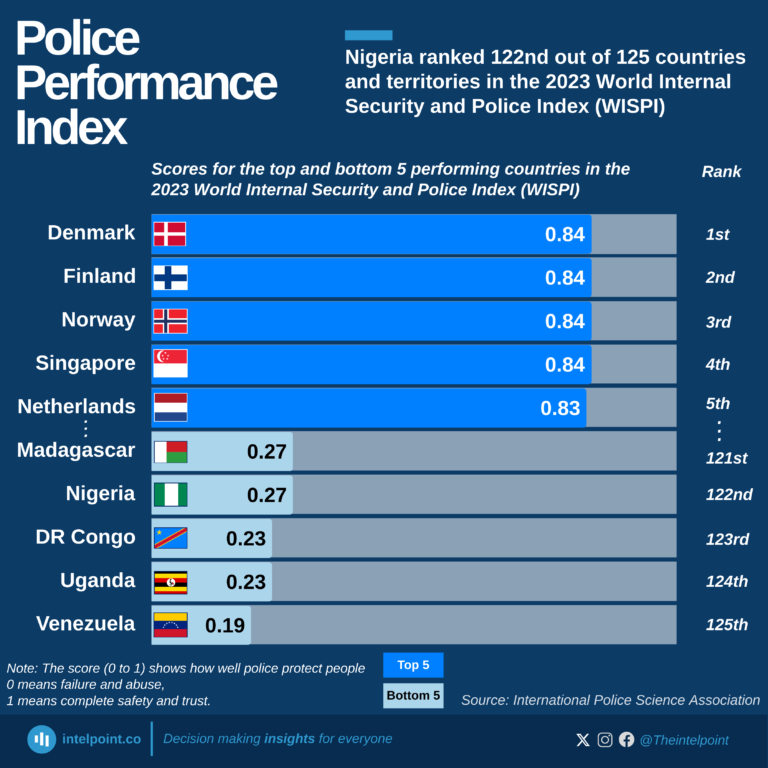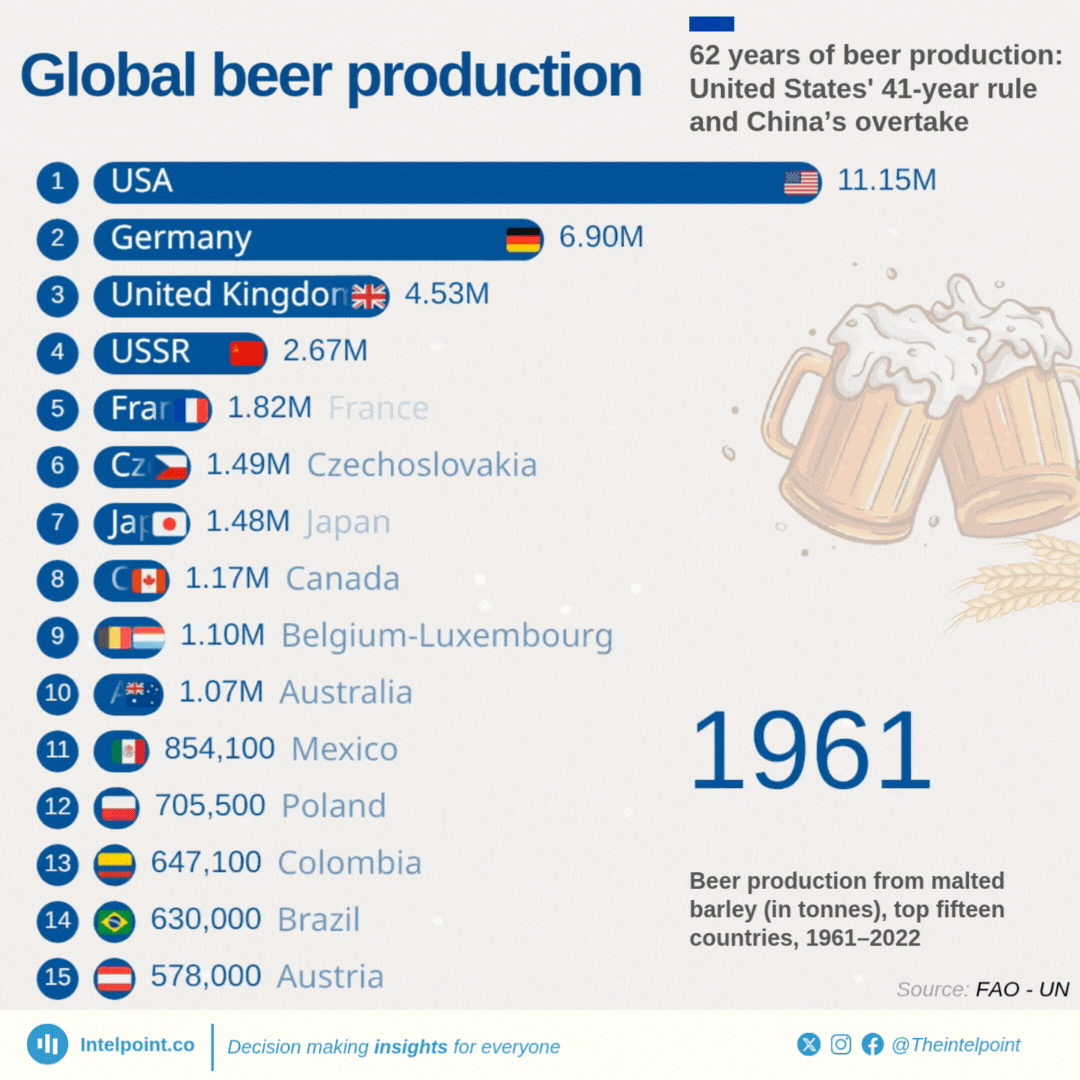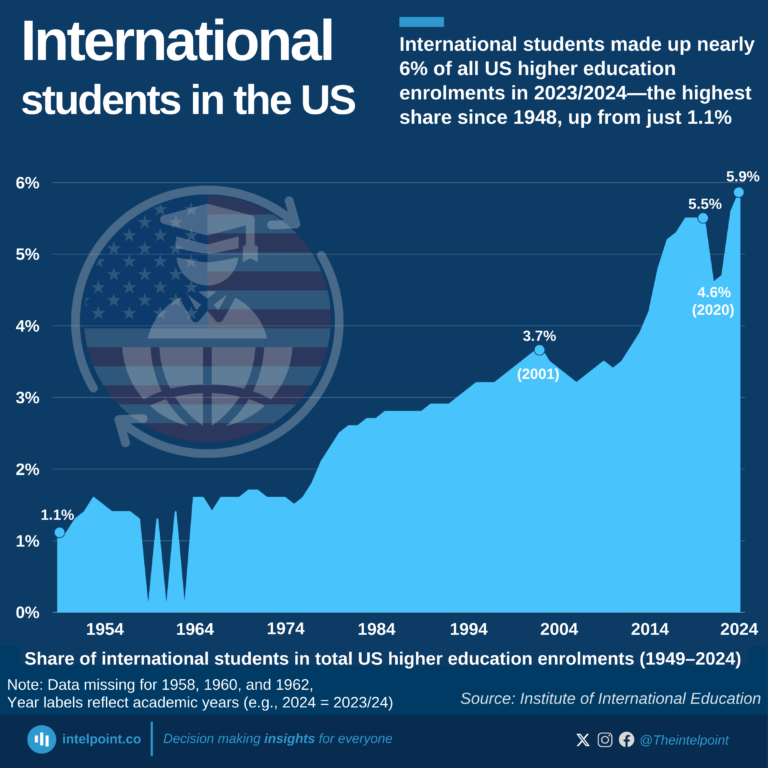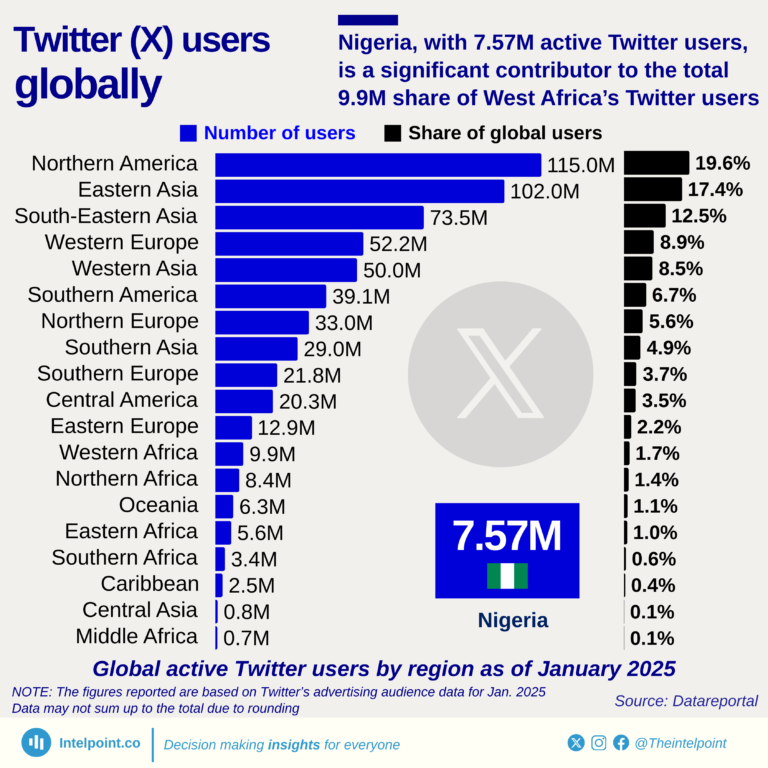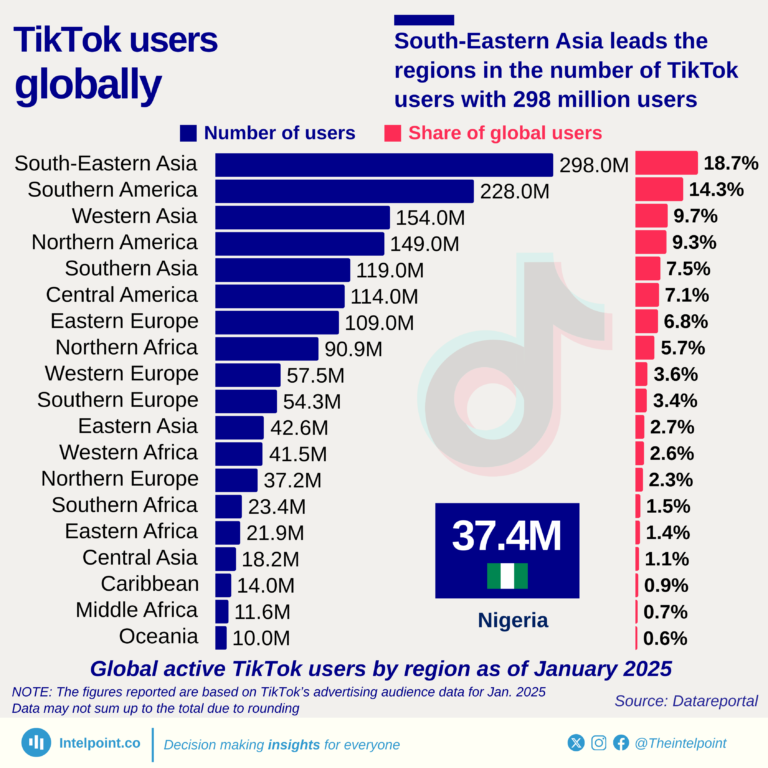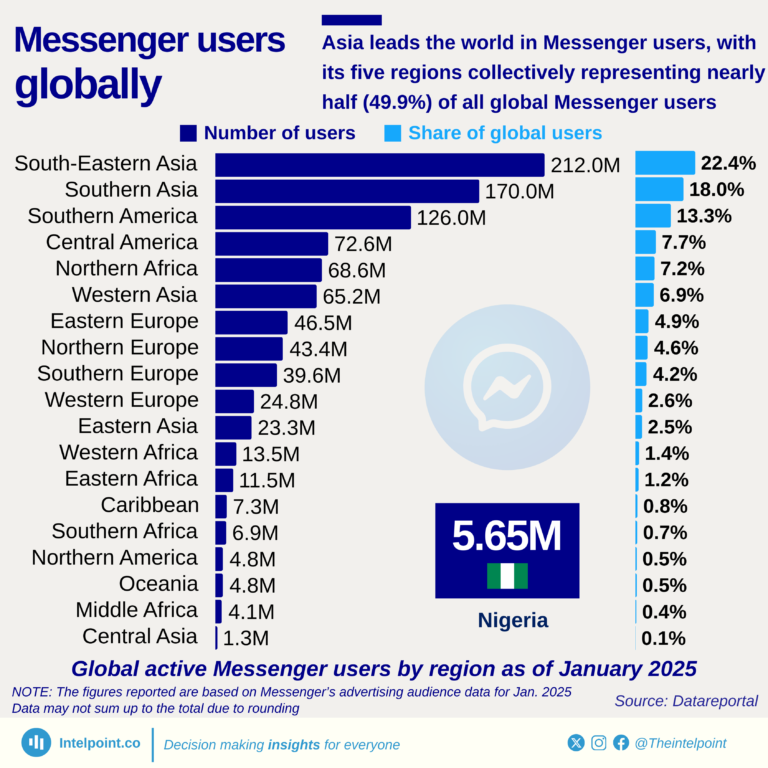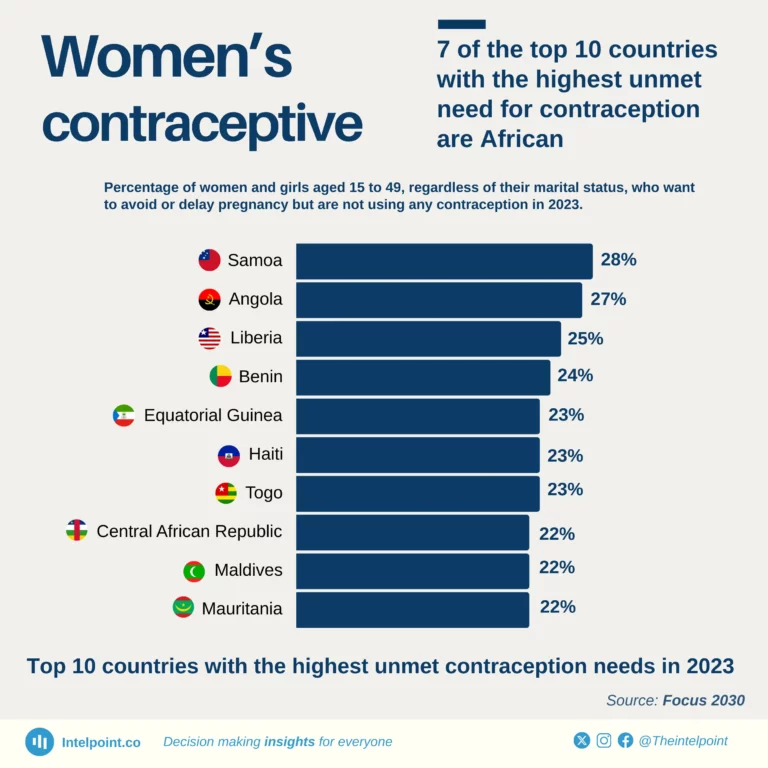
On #WorldContraceptionDay, it's vital to highlight that in 2023, many women and girls aged 15 to 49 globally still have unmet contraceptive needs.
Samoa (28%), Angola (27%), and Liberia (25%) are among the top 10 countries.
Notably, seven of the top 10 are African, underscoring the urgent need for better reproductive health services.
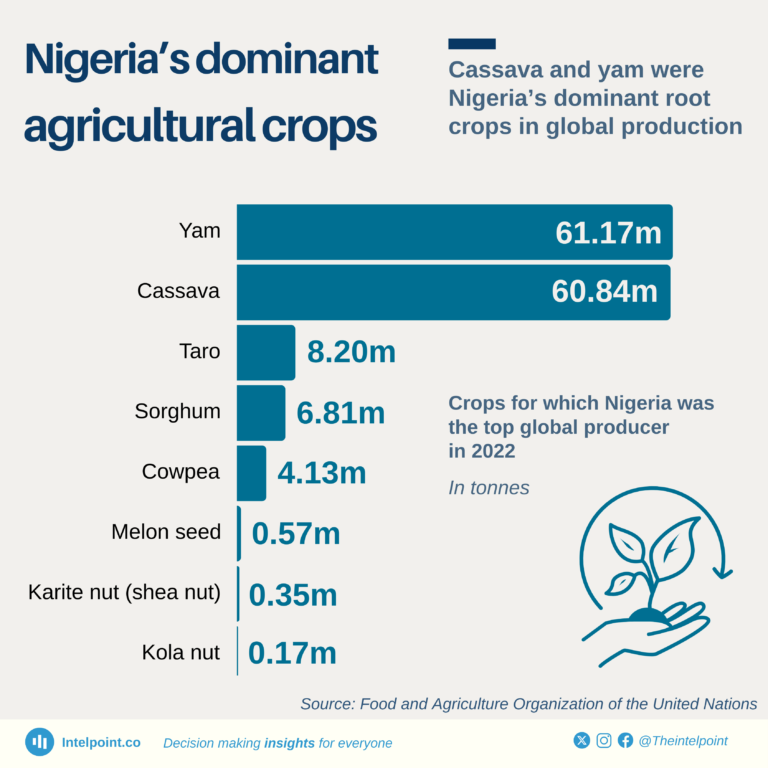
In 2022, Nigeria led global production of root crops like yam, cassava, and taro, alongside nuts such as kola and karite, as well as grains like sorghum, with 61.2 million tonnes of yam and 60.8 million tonnes of cassava.
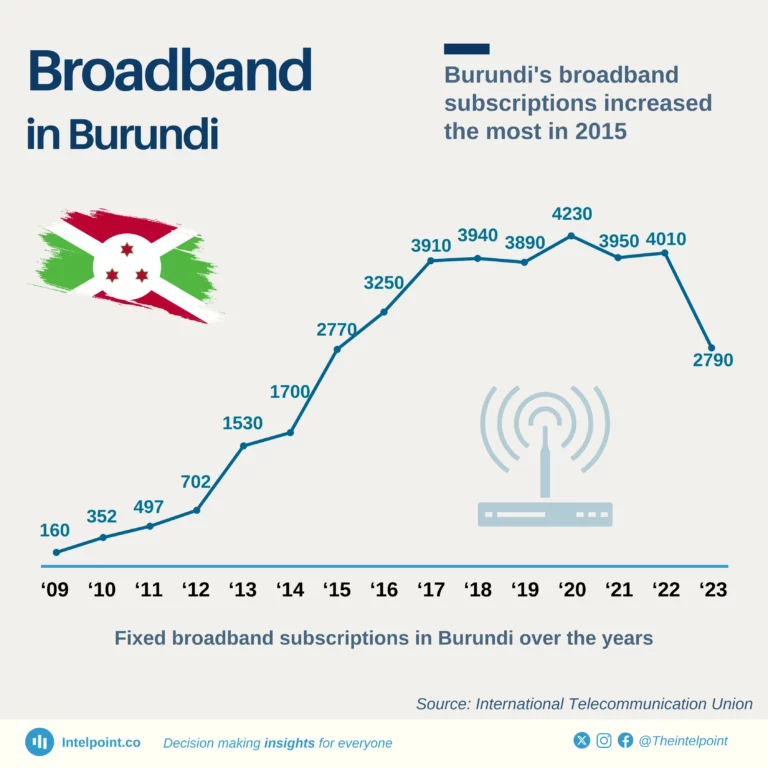
In 2022, only 11.3% of Burundi's population was using the Internet. As of 2023, the East African nation had an adult population of over 7 million and less than 3,000 fixed broadband subscriptions and 8.65 million mobile lines. Burundi's fixed broadband subscriptions grew from only 160 in 2009 to 2,790 in 2023, peaking at 4,230 in 2020 before a decline.

Nigeria was once a global leader in palm oil production, but it has been overtaken by Malaysia, Indonesia, Thailand, and Colombia.
Indonesia, in particular, has seen a 34,018% increase in production since 1961, reaching 49.7 million tonnes by 2021.
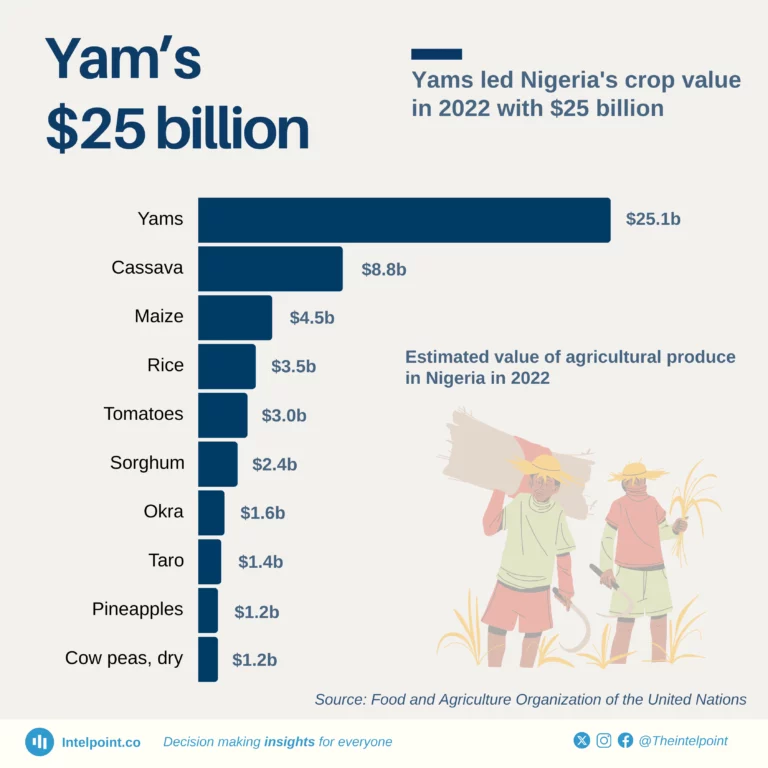
In 2022, yams topped the list of over 44 agricultural products in Nigeria, with 61.2 million tonnes valued at $25 billion, making Nigeria the leading producer of yam globally.
Cassava followed with $8.8 billion, and maize ranked third with $4.5 billion. These crops underscore Nigeria's agricultural strength.
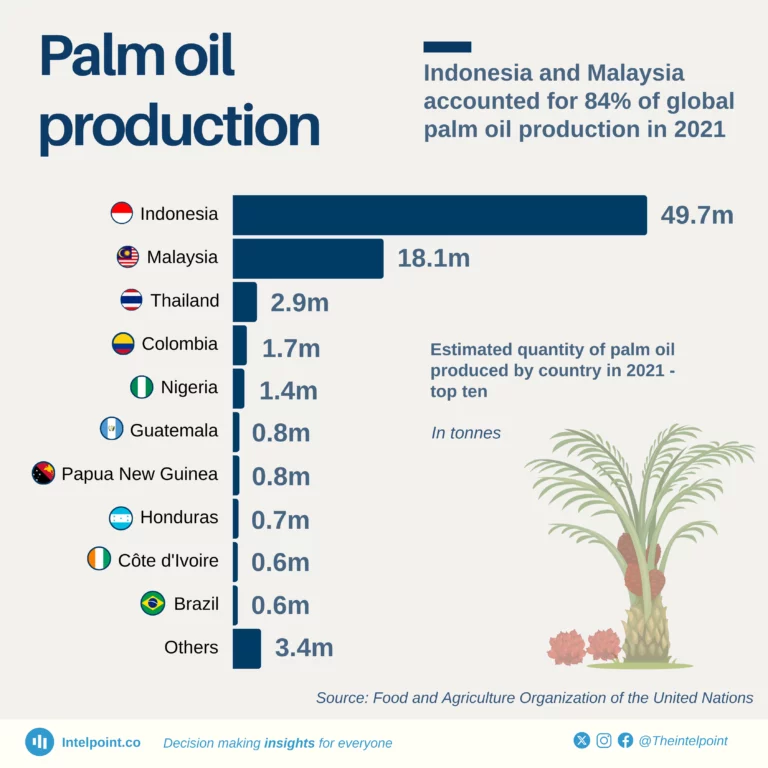
Asian countries dominated the global palm oil market in 2021.
Indonesia and Malaysia accounted for 67.8 million tonnes out of 80.7 million tonnes produced.
Smaller producers like Nigeria (1.4 million tonnes) and Guatemala (0.8 million tonnes) had modest contributions.
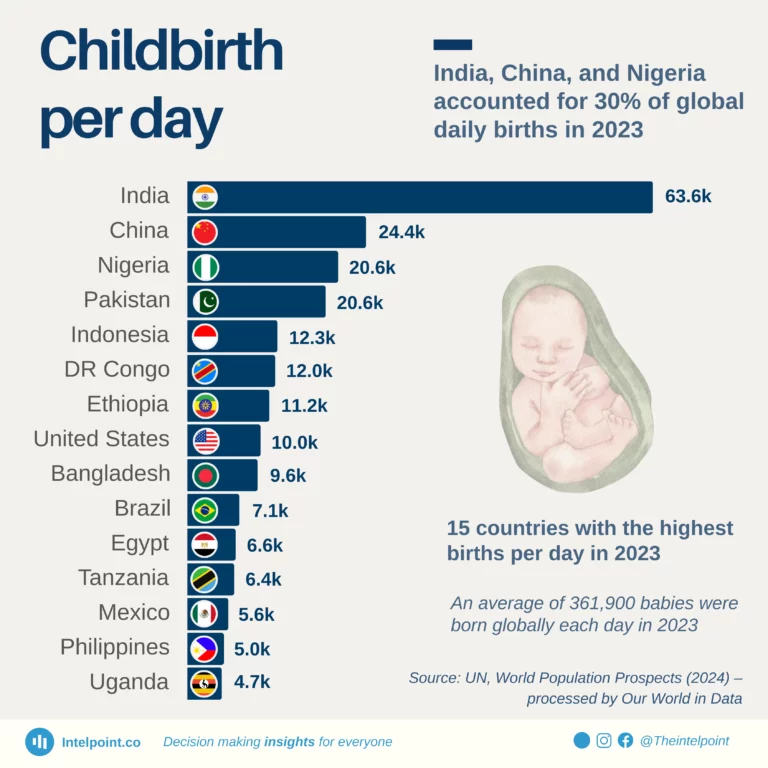
In 2023, an estimated 132.1 million newborns were welcomed worldwide, averaging 361.9 thousand births per day.
India, China, and Nigeria accounted for nearly 30% of daily births; India had the highest contribution with 63,600.
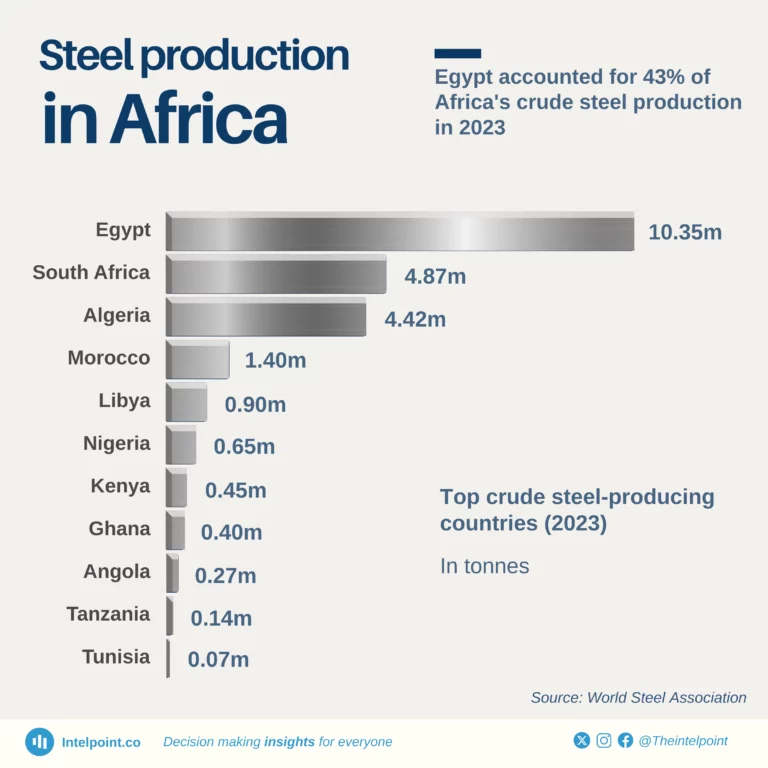
In 2023, Egypt, South Africa, Algeria, and Morocco dominated Africa's steel industry, accounting for 88% of the continent's production.
Egypt led the charge, contributing 43% of Africa's total steel output. Despite this, Africa's 23.92 million tonnes only make up 1.26% of global production.
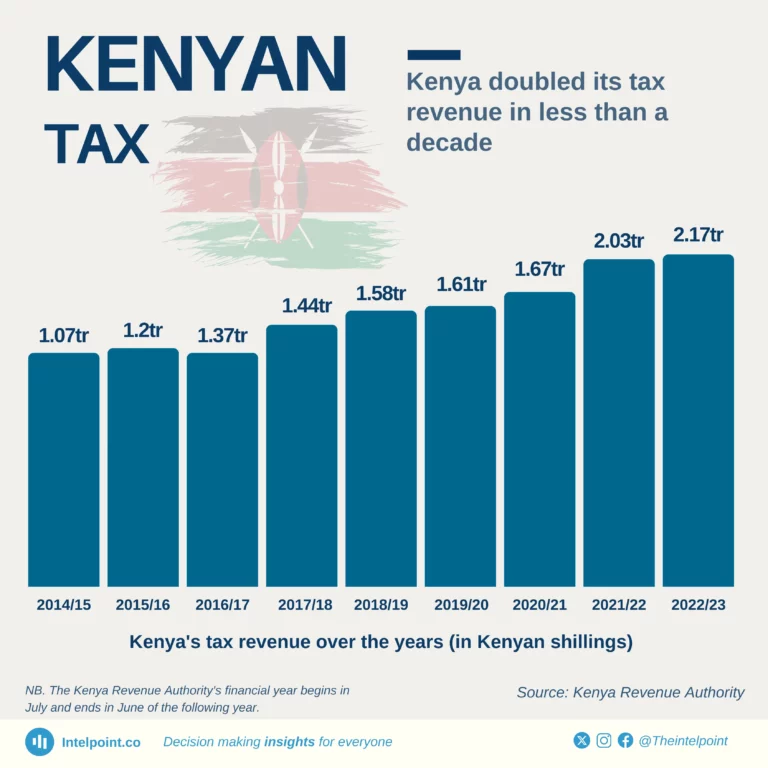
Kenya's Revenue Authority has doubled its revenue, growing from KSh 1.1 trillion in the 2014/15 financial year to KSh 2.2 trillion in 2022/23.
The most significant annual growth occurred in 2021/22, with a 21.7% increase. Over nine years, tax revenue grew by an average of 9.4%, demonstrating consistent progress in Kenya's fiscal management.
